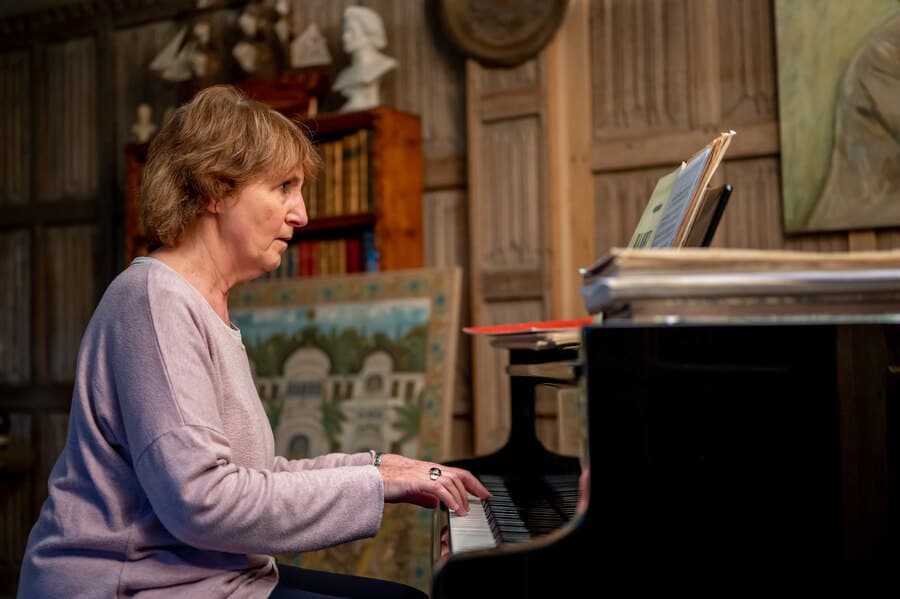Study finds link between playing an instrument and better brain health in older adults

Scientists working on PROTECT, an online study open to people aged 40 and over, reviewed data from more than a thousand adults over the age of 40 to see the effect of playing a musical instrument – or singing in a choir – on brain health. Over 25,000 people have signed up for the PROTECT study, which has been running for 10 years.
The team reviewed participants’ musical experience and lifetime exposure to music, alongside results of cognitive testing, to determine whether musicality helps to keep the brain sharp in later life.
The findings show that playing a musical instrument, particularly the piano, is linked to improved memory and the ability to solve complex tasks – known as executive function.
Continuing to play into later life provides even greater benefit. The work also suggests that singing was also linked to better brain health, although this may also be due to the social factors of being part of a choir or group.
Anne Corbett, Professor of Dementia Research at the University of Exeter said: “A number of studies have looked at the effect of music on brain health.
“Our PROTECT study has given us a unique opportunity to explore the relationship between cognitive performance and music in a large cohort of older adults. Overall, we think that being musical could be a way of harnessing the brain’s agility and resilience, known as cognitive reserve.”
“Although more research is needed to investigate this relationship, our findings indicate that promoting musical education would be a valuable part of public health initiatives to promote a protective lifestyle for brain health, as would encouraging older adults to return to music in later life.
“There is considerable evidence for the benefit of music group activities for individuals with dementia, and this approach could be extended as part of a healthy ageing package for older adults to enable them to proactively reduce their risk and to promote brain health.”
The idea from the study came from University of Exeter Medicine student Gaia Vetere, a keen pianist, who contacted the PROTECT study team. She said: “As a pianist, I was interested in researching the impact of music and cognition. Being fairly new to the world of research and publishing, this was a challenging but also truly enriching experience.”
The paper, ‘The relationship between playing musical instruments and cognitive trajectories: Analysis from a UK ageing cohort’, is published in International Journal of Geriatric Psychiatry.
This study is supported by the National Institute for Health and Care Research (NIHR) Applied Research Collaboration South West Peninsula (PenARC) and NIHR Exeter Biomedical Research Centre.


